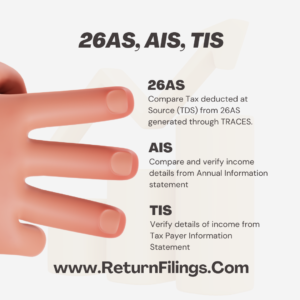Introduction: In the realm of corporate governance, Director Identification Number (DIN) plays a pivotal role, particularly in jurisdictions like India. This unique identifier is essential for individuals holding directorial positions within companies registered in India. Alongside DIN, the Annual KYC (Know Your Customer) requirement ensures the integrity of directorship information, promoting transparency and accountability within the corporate sector. This article explores the significance of DIN, its annual KYC requirement, the process of online KYC, and the associated penalties for non-compliance.
Director Identification Number (DIN): Meaning and Importance
Director Identification Number (DIN) is a unique eight-digit alphanumeric code assigned by the Ministry of Corporate Affairs (MCA) in India to individuals who are appointed or are eligible to be appointed as directors of companies registered under the Companies Act, 2013. DIN serves as an identifier, linking directors to their respective companies and facilitating regulatory compliance.
The issuance of DIN aims to streamline corporate governance by ensuring that directors are accountable for their actions and are traceable in the event of any legal or regulatory scrutiny. It enhances transparency by providing stakeholders with access to vital information about directors, such as their background, qualifications, and directorial history.
Annual KYC requirement for DIN holders
To maintain the accuracy and reliability of directorship information, the MCA mandates an Annual KYC requirement for all individuals holding DINs. This requirement necessitates the submission of updated information and documentation by DIN holders on an annual basis. The objective is to verify and validate the details of directors, ensuring that they remain current and accurate.
The Annual KYC process serves several key purposes:
- Verification of Director details: By requiring directors to undergo annual KYC, the MCA verifies the authenticity of their information, including personal details, residential address, and contact information.
- Enhanced Transparency: Regular KYC updates enhance transparency within the corporate sector by providing stakeholders with up-to-date information about directors associated with registered companies.
- Compliance Monitoring: The Annual KYC requirement enables regulatory authorities to monitor compliance with corporate governance norms and identify any discrepancies or inconsistencies in directorship information.
Online KYC process for DIN holders:
The MCA has streamlined the Annual KYC process by introducing an online platform for DIN holders to submit their KYC details electronically. The online KYC process simplifies compliance for directors and ensures efficiency in data submission and verification.
There are two modes of filing DIN KYC, one is e-form DIR-3 KYC and another is DIR-3 KYC web service. If any particulars such as address, mobile number, photo, e-mail address etc requires any update then there is requirement of filing e-form DIR-3 KYC. In case if all particulars are updated then DIN users can file DIR-3 KYC web service. DIR-3 KYC web service is an annual KYC compliance need to meet by DIN holders and there is no need of digital signature while filing DIR-3 KYC web service. If DIR-3 KYC web service form is filed before 30th September then there are no fees levied for annual DIN KYC.
- Login to MCA Portal: DIN holders log in to the MCA portal using their credentials to access the KYC submission portal.
- Verification of details: Directors review their pre-filled details and ensure their accuracy. Any discrepancies or changes are updated during the KYC submission process.
- Submission and Verification: Undergo verification by the MCA for accuracy and completeness, this is done through OTP (One time password) verified from mobile number and e-mail both.
- Confirmation: Upon successful verification, directors receive confirmation of their KYC compliance, indicating that their details are updated and accurate for the current financial year.
Due date for Annual KYC of DIN
The due date for the Annual KYC of DIN is typically set by the MCA and as per the provisions of Rule 12A of the Companies (Appointment and qualification of Directors) Rules, 2014, every individual who is allotted DIN as on 31st March of the financial year must submit his KYC on or before 30th September of the immediately next financial year. Before due date i.e. 30th September, DIN holders can do KYC without any fees. DIN holders are generally required to complete their KYC submission before the specified due date to avoid penalties for non-compliance. After dye date KYC can be done but it attracts filing fees of INR 5000 per DIN for DIN KYC done after due date i.e. 30th September.
It is imperative for directors to monitor communications from the MCA regarding KYC deadlines and ensure timely submission to maintain compliance with regulatory requirements.
Penalties for Non-compliance
Failure to comply with the Annual KYC requirement for DIN holders may result in penalties imposed by the MCA. The penalties for non-compliance can vary depending on the duration of the delay and the extent of the discrepancies identified in the directorship information.
Some of the potential penalties for non-compliance with Annual KYC include:
- Monetary Penalties: DIN holders may be liable to pay monetary penalties for late submission or non-submission of their Annual KYC. The amount of the penalty can escalate with prolonged delays and repeated instances of non-compliance.
- Disqualification: Persistent non-compliance with the Annual KYC requirement may lead to the disqualification of directors, prohibiting them from holding directorial positions in registered companies.
- Legal Consequences: In addition to monetary penalties and disqualification, directors may face legal repercussions for providing false or misleading information during the KYC process, including potential criminal liabilities.
Conclusion:
Director Identification Number (DIN) and the Annual KYC requirement play a crucial role in upholding corporate governance standards and ensuring transparency in the Indian corporate sector. DIN serves as a unique identifier for directors, facilitating regulatory compliance and accountability. The Annual KYC requirement reinforces the integrity of directorship information by mandating regular updates and verification of director details.
The online KYC process introduced by the MCA simplifies compliance for DIN holders, enabling them to submit their KYC details electronically. However, directors must adhere to the prescribed deadlines to avoid penalties for non-compliance. Timely submission of Annual KYC ensures that directorship information remains accurate and up-to-date, fostering trust and confidence among stakeholders.
Overall, compliance with the Annual KYC requirement is essential for directors to complete their regulatory obligations and uphold corporate governance standards, thereby contributing to the credibility and sustainability of the Indian corporate ecosystem.
निदेशक पहचान संख्या (डीआईएन) और डीआईएन की वार्षिक केवाईसी आवश्यकता को समझना
परिचय: कॉर्पोरेट प्रशासन के क्षेत्र में, निदेशक पहचान संख्या (डीआईएन) एक महत्वपूर्ण भूमिका निभाती है, खासकर भारत जैसे न्यायक्षेत्रों में। यह विशिष्ट पहचानकर्ता भारत में पंजीकृत कंपनियों में निदेशक पद पर बैठे व्यक्तियों के लिए आवश्यक है। डीआईएन के साथ-साथ, वार्षिक केवाईसी (अपने ग्राहक को जानें) आवश्यकता निदेशक पद की जानकारी की अखंडता सुनिश्चित करती है, कॉर्पोरेट क्षेत्र के भीतर पारदर्शिता और जवाबदेही को बढ़ावा देती है। यह लेख डीआईएन के महत्व, इसकी वार्षिक केवाईसी आवश्यकता, ऑनलाइन केवाईसी की प्रक्रिया और गैर-अनुपालन के लिए संबंधित दंडों की पड़ताल करता है।
निदेशक पहचान संख्या (डीआईएन): अर्थ और महत्वनिदेशक पहचान संख्या (डीआईएन) एक अद्वितीय आठ अंकों का अल्फ़ान्यूमेरिक कोड है जो भारत में कॉर्पोरेट मामलों के मंत्रालय (एमसीए) द्वारा उन व्यक्तियों को सौंपा जाता है जो कंपनी अधिनियम, 2013 के तहत पंजीकृत कंपनियों के निदेशक के रूप में नियुक्त या नियुक्त होने के योग्य हैं। डीआईएन एक पहचानकर्ता के रूप में कार्य करता है, निदेशकों को उनकी संबंधित कंपनियों से जोड़ता है और नियामक अनुपालन की सुविधा प्रदान करता है।
डीआईएन जारी करने का उद्देश्य यह सुनिश्चित करके कॉर्पोरेट प्रशासन को सुव्यवस्थित करना है कि निदेशक अपने कार्यों के लिए जवाबदेह हैं और किसी भी कानूनी या नियामक जांच की स्थिति में उनका पता लगाया जा सकता है। यह हितधारकों को निदेशकों के बारे में महत्वपूर्ण जानकारी, जैसे उनकी पृष्ठभूमि, योग्यता और निर्देशन इतिहास तक पहुंच प्रदान करके पारदर्शिता बढ़ाता है।
डीआईएन धारकों के लिए वार्षिक केवाईसी आवश्यकतानिदेशक पद की जानकारी की सटीकता और विश्वसनीयता बनाए रखने के लिए, एमसीए डीआईएन रखने वाले सभी व्यक्तियों के लिए वार्षिक केवाईसी आवश्यकता को अनिवार्य करता है। इस आवश्यकता के लिए डीआईएन धारकों द्वारा वार्षिक आधार पर अद्यतन जानकारी और दस्तावेज जमा करना आवश्यक है। इसका उद्देश्य निदेशकों के विवरण को सत्यापित और मान्य करना है, यह सुनिश्चित करना कि वे वर्तमान और सटीक रहें।
वार्षिक केवाईसी प्रक्रिया कई प्रमुख उद्देश्यों को पूरा करती है:
- निदेशक विवरण का सत्यापन: निदेशकों को वार्षिक केवाईसी से गुजरने की आवश्यकता के द्वारा, एमसीए व्यक्तिगत विवरण, आवासीय पता और संपर्क जानकारी सहित उनकी जानकारी की प्रामाणिकता की पुष्टि करता है।
- बढ़ी हुई पारदर्शिता: नियमित केवाईसी अपडेट हितधारकों को पंजीकृत कंपनियों से जुड़े निदेशकों के बारे में नवीनतम जानकारी प्रदान करके कॉर्पोरेट क्षेत्र के भीतर पारदर्शिता बढ़ाते हैं।
- अनुपालन निगरानी: वार्षिक केवाईसी आवश्यकता नियामक अधिकारियों को कॉर्पोरेट प्रशासन मानदंडों के अनुपालन की निगरानी करने और निदेशक पद की जानकारी में किसी भी विसंगति या असंगतता की पहचान करने में सक्षम बनाती है।
DIN धारकों के लिए ऑनलाइन KYC प्रक्रिया:
एमसीए ने डीआईएन धारकों के लिए अपने केवाईसी विवरण इलेक्ट्रॉनिक रूप से जमा करने के लिए एक ऑनलाइन प्लेटफॉर्म शुरू करके वार्षिक केवाईसी प्रक्रिया को सुव्यवस्थित किया है। ऑनलाइन केवाईसी प्रक्रिया निदेशकों के लिए अनुपालन को सरल बनाती है और डेटा प्रस्तुत करने और सत्यापन में दक्षता सुनिश्चित करती है।
DIN KYC दाखिल करने के दो तरीके हैं, एक है ई-फॉर्म DIR-3 KYC और दूसरा है DIR-3 KYC वेब सेवा। यदि किसी विवरण जैसे पता, मोबाइल नंबर, फोटो, ई-मेल पता आदि को अपडेट करने की आवश्यकता है तो ई-फॉर्म डीआईआर-3 केवाईसी दाखिल करने की आवश्यकता है। यदि सभी विवरण अद्यतन हैं तो DIN उपयोगकर्ता DIR-3 KYC वेब सेवा दाखिल कर सकते हैं। DIR-3 KYC वेब सेवा DIN धारकों द्वारा पूरी की जाने वाली एक वार्षिक KYC अनुपालन आवश्यकता है और DIR-3 KYC वेब सेवा दाखिल करते समय डिजिटल हस्ताक्षर की कोई आवश्यकता नहीं है। यदि DIR-3 KYC वेब सेवा फॉर्म 30 सितंबर से पहले दाखिल किया जाता है तो वार्षिक DIN KYC के लिए कोई शुल्क नहीं लगेगा।
- एमसीए पोर्टल पर लॉग इन करें: डीआईएन धारक केवाईसी सबमिशन पोर्टल तक पहुंचने के लिए अपने क्रेडेंशियल्स का उपयोग करके एमसीए पोर्टल पर लॉग इन करते हैं।
- विवरणों का सत्यापन: निदेशक अपने पहले से भरे गए विवरणों की समीक्षा करते हैं और उनकी सटीकता सुनिश्चित करते हैं। केवाईसी जमा करने की प्रक्रिया के दौरान किसी भी विसंगति या परिवर्तन को अपडेट किया जाता है।
- सबमिशन और सत्यापन: सटीकता और पूर्णता के लिए एमसीए द्वारा सत्यापन से गुजरना, यह मोबाइल नंबर और ई-मेल दोनों से सत्यापित ओटीपी (वन टाइम पासवर्ड) के माध्यम से किया जाता है।
- पुष्टिकरण: सफल सत्यापन पर, निदेशकों को उनके केवाईसी अनुपालन की पुष्टि प्राप्त होती है, जो दर्शाता है कि उनका विवरण चालू वित्तीय वर्ष के लिए अद्यतन और सटीक है।
डीआईएन की वार्षिक केवाईसी के लिए नियत तिथिडीआईएन की वार्षिक केवाईसी की नियत तारीख आमतौर पर एमसीए द्वारा निर्धारित की जाती है और कंपनी (निदेशकों की नियुक्ति और योग्यता) नियम, 2014 के नियम 12 ए के प्रावधानों के अनुसार, प्रत्येक व्यक्ति को वित्तीय वर्ष के 31 मार्च को डीआईएन आवंटित किया जाता है। अगले वित्तीय वर्ष के तुरंत 30 सितंबर को या उससे पहले अपना केवाईसी जमा करना होगा। नियत तारीख यानी 30 सितंबर से पहले डीआईएन धारक बिना किसी शुल्क के केवाईसी कर सकते हैं। गैर-अनुपालन के लिए दंड से बचने के लिए डीआईएन धारकों को आम तौर पर निर्दिष्ट नियत तारीख से पहले अपना केवाईसी जमा करना आवश्यक होता है। डाई तिथि के बाद केवाईसी किया जा सकता है, लेकिन नियत तिथि यानी 30 सितंबर के बाद की जाने वाली डीआईएन केवाईसी के लिए प्रति डीआईएन 5000 रुपये की फाइलिंग फीस लगती है।
निदेशकों के लिए केवाईसी की समय सीमा के संबंध में एमसीए से संचार की निगरानी करना और नियामक आवश्यकताओं के अनुपालन को बनाए रखने के लिए समय पर सबमिशन सुनिश्चित करना अनिवार्य है।
अनुपालन न करने पर जुर्मानाडीआईएन धारकों के लिए वार्षिक केवाईसी आवश्यकता का अनुपालन करने में विफलता के परिणामस्वरूप एमसीए द्वारा जुर्माना लगाया जा सकता है। गैर-अनुपालन के लिए दंड देरी की अवधि और निदेशक की जानकारी में पहचानी गई विसंगतियों की सीमा के आधार पर भिन्न हो सकते हैं।
वार्षिक केवाईसी का अनुपालन न करने पर कुछ संभावित दंडों में शामिल हैं:
- मौद्रिक दंड: डीआईएन धारकों को अपने वार्षिक केवाईसी को देर से जमा करने या जमा न करने के लिए मौद्रिक दंड का भुगतान करना पड़ सकता है। लंबे समय तक देरी और बार-बार गैर-अनुपालन की घटनाओं से जुर्माने की राशि बढ़ सकती है।
- अयोग्यता: वार्षिक केवाईसी आवश्यकता का लगातार अनुपालन न करने पर निदेशकों को अयोग्य ठहराया जा सकता है, जिससे उन्हें पंजीकृत कंपनियों में निदेशक पद संभालने से रोका जा सकता है।
- कानूनी परिणाम: मौद्रिक दंड और अयोग्यता के अलावा, निदेशकों को संभावित आपराधिक देनदारियों सहित केवाईसी प्रक्रिया के दौरान गलत या भ्रामक जानकारी प्रदान करने के लिए कानूनी नतीजों का सामना करना पड़ सकता है।
निष्कर्ष:
निदेशक पहचान संख्या (डीआईएन) और वार्षिक केवाईसी आवश्यकता कॉर्पोरेट प्रशासन मानकों को बनाए रखने और भारतीय कॉर्पोरेट क्षेत्र में पारदर्शिता सुनिश्चित करने में महत्वपूर्ण भूमिका निभाती है। DIN निदेशकों के लिए एक विशिष्ट पहचानकर्ता के रूप में कार्य करता है, जो नियामक अनुपालन और जवाबदेही की सुविधा प्रदान करता है। वार्षिक केवाईसी आवश्यकता निदेशक विवरण के नियमित अद्यतन और सत्यापन को अनिवार्य करके निदेशक पद की जानकारी की अखंडता को मजबूत करती है।
एमसीए द्वारा शुरू की गई ऑनलाइन केवाईसी प्रक्रिया डीआईएन धारकों के लिए अनुपालन को सरल बनाती है, जिससे वे अपने केवाईसी विवरण इलेक्ट्रॉनिक रूप से जमा करने में सक्षम हो जाते हैं। हालाँकि, निदेशकों को गैर-अनुपालन के लिए दंड से बचने के लिए निर्धारित समय सीमा का पालन करना होगा। वार्षिक केवाईसी समय पर जमा करने से यह सुनिश्चित होता है कि निदेशक पद की जानकारी सटीक और अद्यतन रहती है, जिससे हितधारकों के बीच विश्वास और विश्वास को बढ़ावा मिलता है।
कुल मिलाकर, निदेशकों के लिए अपने नियामक दायित्वों को पूरा करने और कॉर्पोरेट प्रशासन मानकों को बनाए रखने के लिए वार्षिक केवाईसी आवश्यकता का अनुपालन आवश्यक है, जिससे भारतीय कॉर्पोरेट पारिस्थितिकी तंत्र की विश्वसनीयता और स्थिरता में योगदान होता है।






